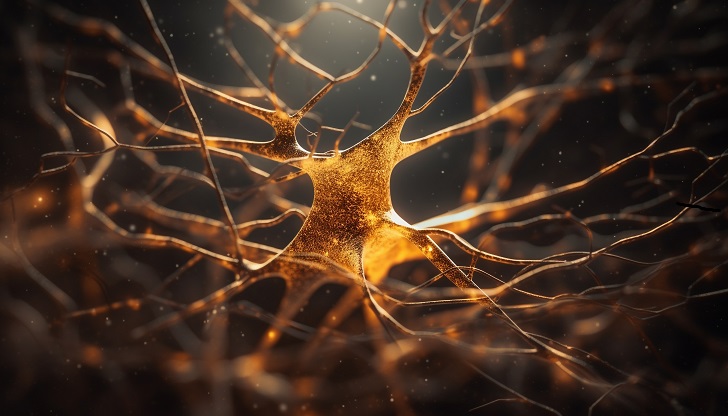
The Link Between Nerve Cells and Schizophrenia Explained

Schizophrenia, a complex mental health disorder, has long been treated symptomatically due to limited knowledge of its root causes. Recent research from the NMI Natural and Medical Sciences Institute in Reutlingen has shed light on the mechanisms driving the disease. This breakthrough offers hope for developing treatments targeting its underlying processes rather than its symptoms.
How Nerve Cells Are Involved in Schizophrenia
Nerve cells, or neurons, play a vital role in brain function and communication. In schizophrenia, these cells often develop abnormally, disrupting their ability to transmit signals effectively. Using advanced DigiWest technology, researchers have analyzed neurons from both healthy and affected individuals. This process has revealed critical insights into how faulty neuronal development contributes to the disease.

@vecstock | Freepik | Nerve cells, or neurons, play a vital role in brain function and communication.
Protein Dysfunction in Schizophrenia
Proteins are essential for numerous cellular functions, including DNA repair and cell cycle regulation. In schizophrenia, these processes malfunction due to protein dysfunction, leading to impaired cell development. The research highlights that proteins like p53, known for their role in severe diseases such as cancer, are also altered in individuals with schizophrenia. This discovery underlines the significance of protein regulation in maintaining healthy neuronal function.
Early Detection Through Precision Technology
The DigiWest analysis provided a unique opportunity to study neurons at an early stage of development. By examining patient-derived cells, scientists observed that diseased neurons showed early signs of faulty development. These findings are crucial because they pinpoint when and why the developmental issues occur, paving the way for interventions at earlier stages of the disease.
The Role of DNA Repair and Cell Cycle Regulation
One of the major revelations of this research is the dysfunction in DNA repair mechanisms within schizophrenic neurons. DNA repair is essential for maintaining the integrity of genetic material, and its disruption can lead to a cascade of cellular malfunctions. Additionally, cell cycle regulation, which governs the orderly division of cells, is also impaired. This double impact significantly disrupts the proper formation and function of nerve cells, contributing to the symptoms associated with schizophrenia.
Insights Into Protein p53 and Schizophrenia
The protein p53, often referred to as the “guardian of the genome,” plays a critical role in regulating cellular processes. When p53 is improperly regulated, it can lead to severe consequences, including cancer. Research shows a significant alteration in p53 activity within neurons in schizophrenia. This link between p53 dysfunction and schizophrenia emphasizes the broader implications of protein regulation in neurological disorders.
While these findings mark an important step forward, the path to developing targeted treatments for schizophrenia remains long. The research underscores the potential for medications that address the root causes of the disease, offering hope for more effective and lasting solutions. However, much work remains to translate these scientific discoveries into clinical applications.
This growing understanding of the interplay between nerve cells, proteins, and schizophrenia represents a promising avenue for future research and innovation in mental health treatment.
More in Health
-
`
Trump’s Surgeon General Pick Dr. Casey Means Praises ‘Illegal’ Psychedelic Therapy
Psychedelic therapy just landed at the center of the national health debate, thanks to Donald Trump’s latest pick for surgeon general....
June 3, 2025 -
`
5 U.S. Family Vacation Spots You Should Book ASAP
If you are looking for the best family vacation spots in 2025, skip the guesswork. These five places deliver the fun,...
May 27, 2025 -
`
These Stars are ‘Banned’ From the 2025 Met Gala
The Met Gala might be fashion’s Super Bowl, but not every celebrity wants to play. While millions obsess over who wore...
May 20, 2025 -
`
5 Archaic Home Decor Trends That Should Never Come Back
Home decor trends come and go faster than a TikTok challenge. One minute you are painting your walls grey, the next...
May 13, 2025 -
`
5 Reasons Why Everyone Is So Obsessed With Gut Health
Gut health is not just another wellness trend anymore. It is front and center for a reason. From TikTok tips to...
May 6, 2025 -
`
Mother’s Day 2025: Top 6 Family-Friendly Activities to Try This Year!
Mother’s Day activities shouldn’t be stressful or boring. This year, think fun, simple, and memory-making. Whether you are celebrating mom, grandma,...
April 29, 2025 -
`
10 Once-Famous Celebs Who Live Totally Normal Lives Now
Some celebs decide that stardom just isn’t for them. While they once walked red carpets and hit magazine covers, they eventually...
April 21, 2025 -
`
Top 5 Expert Tips for Designing a Home That Lasts a Lifetime
A good home is not just about curb appeal or trendy features. It is about smart choices that make life easier...
April 15, 2025 -
`
Fitness, Health & Performance: How Runners Can Master All Three
Runners care about more than just miles. They want to feel strong, stay healthy, and hit new personal bests. But balancing...
April 7, 2025
















You must be logged in to post a comment Login